Hyperthyroidism is when the thyroid gland produces too many hormones due to increased activity. Your cat’s health can be affected by excessive thyroid hormone production: weight loss, hyperactivity, or high blood pressure. This disease can be treated with several options, including daily oral treatment for life. It may also be necessary to undergo surgery or treatment with radioactive iodine since both methods allow a full recovery. However, a few of these procedures are available, and they are expensive and invasive. Your kitty’s diet should be the first treatment option you try!
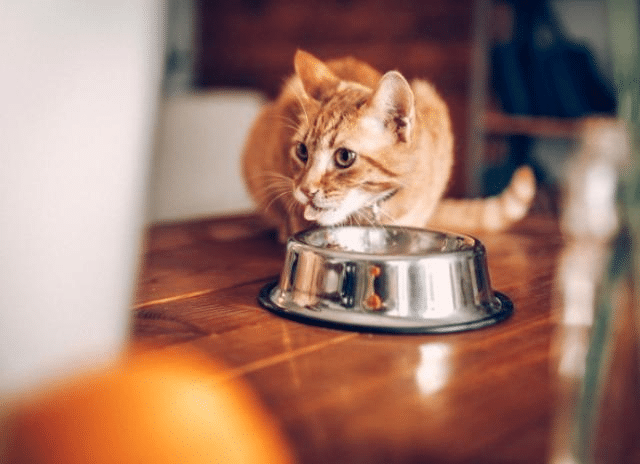
Source: google.com
In What Ways Does Hyperthyroidism Occur?
Although dietary iodine is considered an influencing factor in cats susceptible to hyperthyroidism, the exact cause has not been identified.
What Is The Diagnosis Of Hyperthyroidism?
Generally, cat hyperthyroidism can be diagnosed easily (see handout “Thyroid Hormone Testing in Cats”). An initial test involves measuring the blood level of total thyroxine (TT4), a thyroid hormone. It is usually easy to diagnose TT4 because the level is so high.
Hyperthyroid cats occasionally have TT4 levels in the upper range of normal when suspected of having hyperthyroidism. It is then necessary to perform another test, usually a free T4 by equilibrium dialysis (FT4 by ED) or a T3 suppression test. If the test results are not diagnostic, an ultrasound of the thyroid (thyroid scintigraphy) or TT4 measurement can be performed in a few weeks.
How Can Hyperthyroidism Be Prevented?
Hyperthyroidism cannot be prevented at this point, but early detection can decrease secondary problems and improve the prognosis. A veterinarian should perform a complete physical examination every six months on all middle-aged and senior cats. Look for evidence of enlargement in the thyroid glands and clinical signs of hyperthyroidism. Detecting hyperthyroidism before irreversible damage occurs in cats over the age of six requires annual blood and urine tests.
Taking care of cats with hyperthyroidism
To treat hyperthyroidism, thyroid hormone levels need to be decreased. There are several ways to accomplish this:
- Treatment with radioactive iodine
- Antithyroid medication, such as methimazole
- For cats with hyperthyroidism, a special diet is recommended
- In most cases, radioactive iodine therapy has replaced thyroidectomy
Using your veterinarian’s guidance, you can decide what kind of treatment is best for your cat. Whatever method you choose, diet can play an essential role in all of them.
Hyperthyroidism Prescription Diets For Cats
A prescription diet that restricts iodine can be used to treat hyperthyroidism without other medical treatment. Cats’ health is still being studied after long-term iodine restriction, however.
Cats with hyperthyroidism should consume foods containing less than 0.32 parts per million iodine. Since thyroid hormones can only be produced with adequate iodine intake, restricting iodine in the diet limits thyroid hormone production.
A commonly prescribed canned cat food that fits the above parameters is Hill’s Prescription Diet y/d Thyroid Care. Also available in dry form is Hill’s Prescription Diet y/d Thyroid Care Original cat food.
This hyperthyroidism diet is clinically proven to lower T4 thyroid hormone levels within three weeks and restore them within a few months.
REMEMBER: If your cat is being treated for hyperthyroidism with an iodine-restricted diet, you cannot feed them anything else.
Treats, people’s food, and hunting or scavenging are not allowed. To improve hormone levels, consuming a diet containing the prescribed amount of iodine is imperative.
Adding Another Treatment To A Cat’s Hyperthyroidism Diet
A high-protein, high-energy food like Instinct by Nature’s Variety Original grain-free chicken recipe wet cat food or Tiki Cat Hanalei Luau wild salmon grain-free wet cat food may benefit many hyperthyroid cats being treated with radioactive iodine therapy, methimazole or thyroidectomy. An overactive thyroid can cause a cat to lose weight and muscle mass. These foods can help regain those losses.
Protein levels may need to be moderated if your cat has compromised kidney function. A cat with kidney disease who consumes too much protein may experience worsened symptoms.
Cats tend to overproduce urine with high thyroid hormone levels, so canned food is ideal due to its high water content. Clean water must also be available at all times for your cat.
A cat’s diet should be adjusted after it has regained a healthy amount of weight after its thyroid levels have been normalized with radioactive iodine therapy, methimazole, or thyroidectomy.
When recovering from an illness, your veterinarian can help you choose an appropriate diet.
5 Best Cat Foods for Hyperthyroidism in 2022
Hill’s Prescription Thyroid Can Food – Best overall
This is the best prescription diet for cats with hypothyroidism because it has been clinically proven effective. The limited iodine formula of this dietary treatment promises to regulate your feline’s thyroid in just three weeks. It is crucial to keep in mind that this dietary treatment will only work if your cat eats only this diet. Aside from maintaining healthy kidneys and supporting heart function, this product also promises to keep your cat’s coat shiny and healthy. It is, however, more expensive than other canned cat foods. Purchasing the product online requires your veterinarian’s authorization, which can be inconvenient at the time. However, if you want to purchase this premium product, you should consult your veterinarian first.
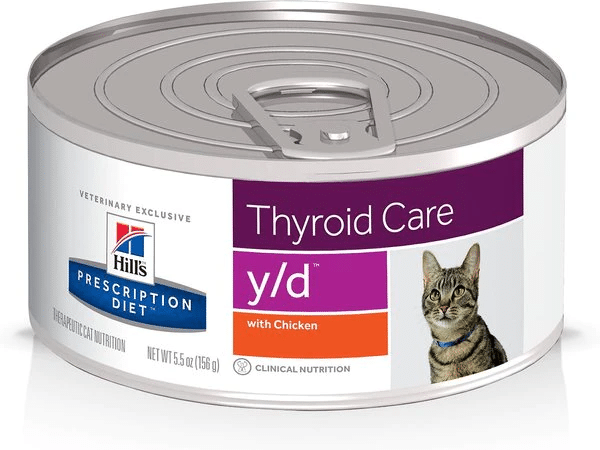
Source: google.com
Hill’s Prescription Thyroid Dry Cat Food – Best Value
Taking the best value dietary treatment is Hill’s Prescription Diet Y/D Thyroid Care Original dry food. After three weeks of consuming this food only, this product also promises to regulate your cat’s thyroid. Because canned food contains a lot of water, we recommend keeping your cat on the wet version if you can afford it. This helps counteract the tendency of your cat to produce too much urine because of its high thyroid hormone levels. Our choice for the best dry cat food for hyperthyroidism is Hill’s Prescription Diet Y/D Thyroid Care because it is the only food on the market that is formulated to regulate an overactive thyroid.
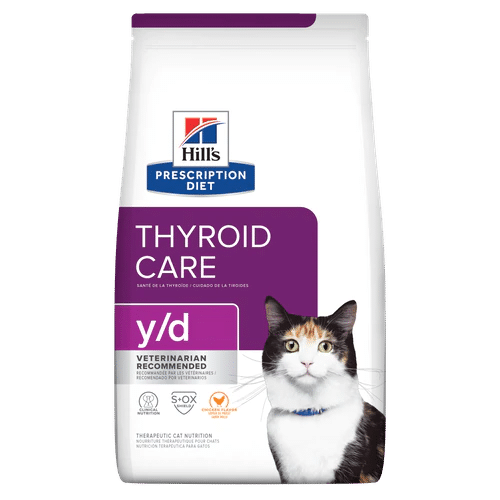
Source: google.com
Instinct Original Chicken Canned Cat Food
After hyperthyroidism radioactive therapy, some cats can eat Instinct Original Grain-Free Pate. It’s free of soy, corn, artificial colours, and preservatives and high in natural meat protein. Therefore, this product is excellent for gaining weight and increasing cat muscle mass. In cats with hyperthyroidism, kidney disease is not uncommon after surgery or therapy, so keep this in mind. Until the hyperthyroid condition is resolved, the renal disease goes unnoticed because hyperthyroidism masks the markers in the blood of the kidney disease. If your cat has renal disease, you must feed him a low-protein diet. Your veterinarian can help you choose the best product for your cat based on the stage of kidney disease your cat is experiencing.
In addition to being carefully balanced and healthy, this paté contains natural sources of omega fatty acids to promote a shiny coat and healthy skin for your cat. If your cat’s kidneys are healthy, you are looking for a high-protein, high-quality product. As a good product recommended by veterinarians, it is also not too expensive.
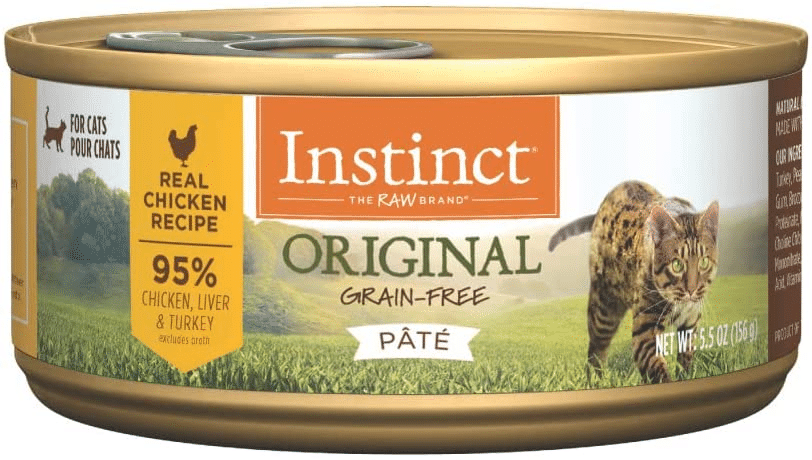
Source: google.com
Tiki Cat Hanalei Luau Wild Salmon Wet Cat Food
While Tiki Cat Hanalei Luau Wild Salmon has a slightly higher iodine content than the previous option, it offers the best value for money. As the first ingredient, wild-caught flaked Alaskan salmon provides excellent moisture. It supports your cat’s digestive and urinary health and keeps them hydrated. Veterinarians also recommend this product for cats recovering from iodine radioactive therapy who do not have kidney conditions and need high protein diets to help them gain weight and muscle.
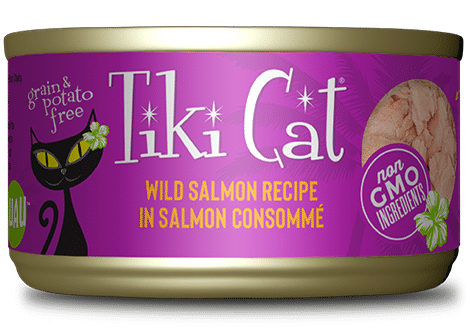
Source: google.com
Feline Chicken & Venison Canned Cat Food – Premium Choice
Cats recovering from hyperthyroid radioactive treatment without a renal disease diagnosis will also benefit from Feline Natural because of its high-quality protein content that is easy to digest, low carbohydrate content, and is ideal for insulin-resistant cats, and its natural ingredients.
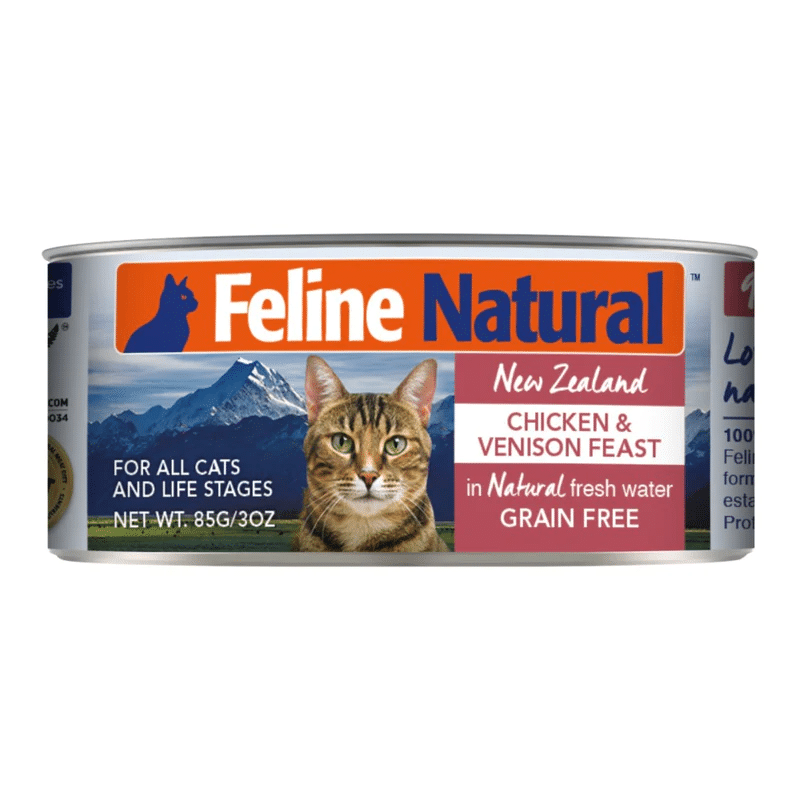
Source: google.com
Conclusion
Every cat owner knows how heartbreaking it is to have a cat with hyperthyroidism. When caregivers know the disease well and are aware of the ways they can manage their cats’ food to accommodate it, these kitties can live happier and healthier lives.
FAQs
Can hyperthyroid cats eat certain foods?
Foods containing iodine, such as seafood, should not be eaten by hyperthyroid cats.
An overactive thyroid gland can be caused by iodine, which can produce thyroid hormone.
What is the life expectancy of a cat with hyperthyroidism?
The thyroid gland is affected by hyperthyroidism. Hormones produced by the thyroid gland regulate our metabolism and are found in the neck. Overactive thyroid glands are usually caused by tumours or autoimmune conditions, resulting in hyperthyroidism.
Depending on the severity of the disease, how long it has existed, and how well it is treated, cats with hyperthyroidism can range from months to years.
What is the recovery time for a cat with hyperthyroidism?
Hyperthyroidism is a condition in which the thyroid gland produces too much thyroxine. You may lose weight, gain weight, experience an increase in appetite, experience difficulty sleeping, and have an increased heart rate. When hyperthyroidism occurs, thyroid hormone levels are usually lowered by medication.
When the symptoms of hyperthyroidism are treated and managed with medication, a cat can recover. The recovery time for a cat with hyperthyroidism varies depending on the severity of the symptoms and the treatment they receive.
